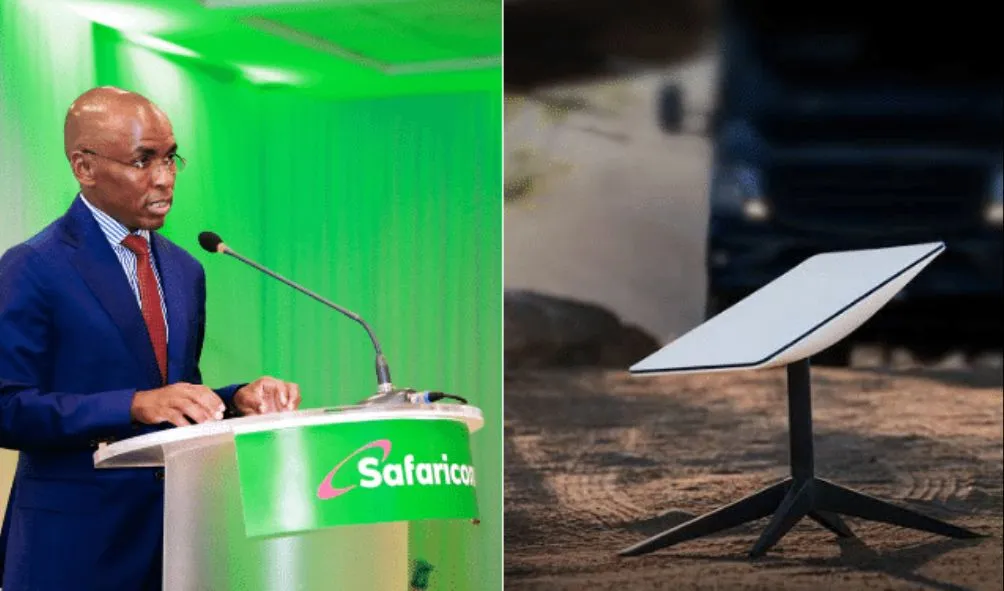Safaricom Calls for Regulation of Starlink in Kenya
Kenya’s largest telecommunications provider, Safaricom, has raised concerns about the entry of Elon Musk’s Starlink, a satellite internet service owned by SpaceX, into the Kenyan market. Safaricom, in a letter to the Communications Authority of Kenya (CAK), urged the government to regulate satellite internet providers, suggesting they should be required to partner with local network operators before obtaining licenses.
Starlink’s Entry and Impact
Starlink officially launched in Kenya in July 2023, offering satellite-based internet that doesn’t rely on traditional ground infrastructure. Unlike fiber and mobile networks, Starlink’s service uses low-Earth orbit satellites to deliver high-speed internet, particularly in remote areas. The company has rolled out competitive pricing and flexible hardware rental options in Kenya, making it a strong contender in the market.
Safaricom’s Concerns Over Unregulated Competition
Safaricom highlighted the potential risks of unregulated satellite internet, such as cross-border service provision, which they argue could result in “harmful interference” within Kenya. Safaricom, partly owned by the Kenyan government, Vodafone, and Vodacom, also emphasized that satellite providers should contribute to the local economy by investing in infrastructure, creating jobs, and adhering to Kenyan laws.
Online Reactions: Kenyans Side With Starlink
Safaricom’s call for regulatory intervention has sparked an online debate, especially on X (formerly known as Twitter). Many Kenyans expressed support for Starlink, viewing it as a much-needed alternative to existing providers like Safaricom, which some feel has monopolized the market for too long.
One user, @CPA_ClementE, commented, “Safaricom’s unease is understandable—Starlink is poised to disrupt the market in a big way, and there will likely be casualties.” Another user, @HonKangata, emphasized Starlink’s superior speed, saying, “Safaricom’s internet speed drops frequently. The speed is so low. At times 4.7 Mbps. New Starlink internet speeds hit 100 Mbps.”
A Potential Market Disruptor
The emergence of Starlink is seen by many as a technological shift that Safaricom may struggle to counter. Notably, @DonaldBKipkorir highlighted the inevitability of innovation: “Ideas whose time has come & disruptive technology can’t be stopped. Safaricom came up with mPesa & disrupted the banking sector in Kenya. Starlink has come to disrupt how the entire world communicates without human disruption.”
The Growing Divide Between Local and Global Competition
The debate also touched on national sentiments. While some users rallied behind the notion of supporting local businesses, others pointed out the advantages that come with embracing global technology. @MalloFredrick noted, “The amount of free promotion Kenyans are giving Starlink is crazy. I can’t believe you guys hated Safaricom that deep. What happened to the ‘Buy Kenya, Build Kenya’ initiative?”
The Future of Internet Services in Kenya
As Starlink gains popularity, the tension between embracing technological advancement and protecting local industries is set to grow. Safaricom’s plea to the CAK may signal the beginning of regulatory battles as global tech giants like Starlink enter the Kenyan market. The outcome of this debate could shape the future of internet services in the country, determining whether competition thrives or remains restricted under regulatory barriers.
This situation highlights the ongoing challenge faced by established local companies as they navigate the rapidly evolving global tech landscape.


